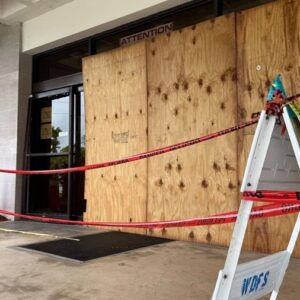Homeland Threat Environment Prompts Urgent FBI, DHS Calls
Senior officials from the FBI and Department of Homeland Security (DHS) held high-level conference calls on Sunday with U.S. governors and law enforcement agencies following the U.S. missile strikes in Iran. The briefings focused on how the strikes could impact the homeland threat environment.
One call included hundreds of state and local law enforcement officials, while another involved state governors and their staff, discussing the elevated threat conditions.
FBI Enhances Posture Nationwide
During the calls, an FBI official stated the agency’s “posture is going to be enhanced” in light of recent military action. More personnel are being asked to report in, while the FBI continues to canvas intelligence sources and monitor potential threats.
Although there is no current, credible intelligence pointing to an immediate threat on U.S. soil, officials are preparing for a possible shift in the risk landscape.
States Urged to Watch for Cyber Activity and Domestic Threats
Federal officials encouraged governors to stay alert for increased cyberattacks and coordinate with state agencies, infrastructure partners, and organizations that could be at risk—particularly Jewish institutions and groups with ties to Israel.
They were also asked to ensure communication with private sector entities that maintain critical infrastructure.
Jewish Institutions Face Elevated Threat Risk
The Secure Community Network (SCN), which works with Jewish institutions across the U.S., joined the call. CEO Michael Masters emphasized that the U.S. military’s involvement in the Iran conflict could increase risk for Jewish communities.
Masters noted that in just a few hours after the U.S. strike, more than 1,600 violent social media posts targeting the Jewish community were recorded—numbers that continue to rise.
He described the strikes as having “opened a new chapter”, warning that Jewish leaders and institutions are now at elevated risk for retaliatory violence.
AI Manipulation: What My Failed Podcast Taught Me About Trust and Transparency
DHS Warns of Worsening Threat Landscape
Jim Dunlap, Deputy Secretary for Analysis at DHS’s Office of Intelligence and Analysis, told participants that the U.S. strike raises the threat environment domestically.
While Tehran has not issued a direct call for violence against the U.S., DHS continues to monitor the situation closely. Dunlap said Iranian action will likely depend on whether they perceive the strikes as destabilizing to the regime.
He added that recent domestic law enforcement disruptions may have weakened Iran’s immediate capacity to carry out any plots on U.S. soil.
Homeland Security Calls for Public Vigilance
DHS recently issued a bulletin urging Americans to report any suspicious activity, citing risks of cyberattacks, acts of violence, and antisemitic hate crimes following the military escalation.
DHS Secretary Kristi Noem stated plainly that Iran’s situation poses serious potential for increased threats, and all agencies should be operating under heightened alert.
Although not all governors could attend the live briefing, sources confirmed that their staff representatives participated to receive full updates on national security implications.
Summary
As tensions escalate in the Middle East, the homeland threat environment in the U.S. has entered a period of increased concern. With federal agencies reinforcing security, governors receiving threat briefings, and Jewish institutions being warned of targeted risk, the response marks a proactive stance in an evolving situation. Officials continue to stress preparedness, coordination, and public awareness in mitigating threats linked to the Iran conflict.






